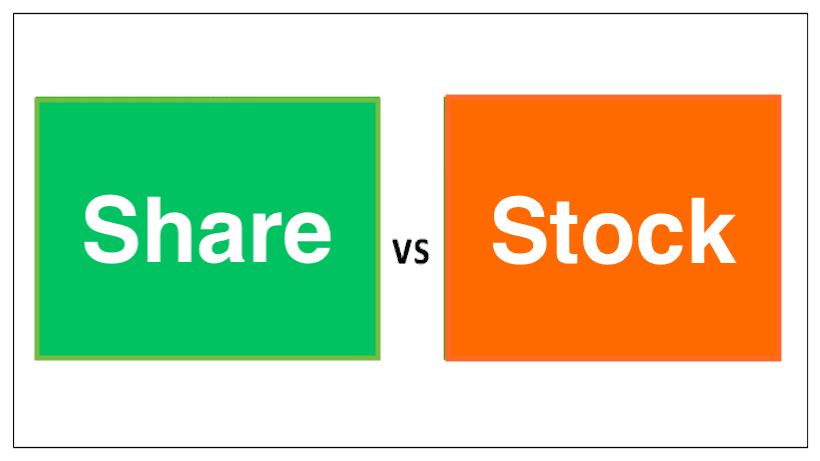Difference between Share and Stock. As per Section 61, Companies Act, 2013, the company can convert its shares which are fully paid up, into stock. Share is a type of security, which signifies ownership in a corporation and represents a claim on the part of the corporation’s assets and earnings. As one acquires more shares, his or her ownership stake in the company becomes larger.
There are two main types of shares, equity shares and preference shares. Equity share usually entitles the owner to vote at shareholders’ meetings and to receive dividends. Preference shares generally do not have voting rights, but have a prior preference on assets and earnings of the company than the equity shares. For example, an owner of Preference shares receive dividends before equity shareholders and have priority in the repayment of capital in the event of a company going bankrupt or liquidated
Share Capital: Funds raised by issuing shares in return for cash or other considerations. The amount of share capital a company can change over time because each time a business sells new shares to the public in exchange for cash, the amount of share capital will increase. Share capital can be composed of both common and preferred shares.
The stock of a corporation is all of the shares into which ownership of the corporation is divided. In American English, the shares are commonly known as “stocks”. A single share of the stock represents fractional ownership of the corporation in proportion to the total number of shares. Wikipedia
Advertisement
in other words “a share in the share capital of a company, and includes stock except where a distinction between stock and shares is expressed or implied.”
| S.no | Share | Stock |
|---|---|---|
| 1 | Shares in physical form bear distinct numbers | Stocks are the consolidated value of share capital |
| 2 | Shares may or may not be fully paidup | Stock is always fully paid-up |
| 3 | Shares have a nominal value | Stock does not have any nominal value |
| 4 | All shares are of equal denomination | Denomination of stocks varies |
| 5 | It is not possible to transfer shares into fraction | Stock is divisible into any amount required. Thus, it is possible to transfer even into fractions |
| 6 | Shares comes into existence before the stock and it is issued initially | Stock comes into existence after conversion of shares into stock and on conversion of shares into stock, the provisions of the Act governing the shares shall cease to apply to the share capital as it is converted into stock |
- (a) A share is a right to a specified amount of the share capital of a company, carrying with it certain rights and liabilities while the company is a going concern and in its winding up. (Halsbury’s Laws of England)
- (b) A share is the interest of a shareholder in the company measured by a sum of money, for the purposes of liability in the first place, and of interest in the second, but also consisting of a series of mutual covenants entered into by all the shareholders inter se. [Borland’s Trustee v. Steel Bros., (1901)].
- (c) A share is a right to participate in the profits made by a company, while it is a going concern and declares a dividend and in the assets of company when it is wound up [Bacha Guzdar v. CIT 57 Bom. L.R. 617 (SC)].
- (d) A share is not a sum of money but a bundle of rights and liabilities; it is an interest measured by a sum of money. These rights and liabilities are regulated by the articles of a company.
- (e) Section 44 of the Companies Act provides that a share or other interest of any member in a company is a movable property transferable in the manner provided by the articles of the company.
- (f) In India, a share is regarded as goods. According to the Sale of Goods Act, 1930, “Goods” means any kind of movable property other than actionable claim and money, and includes stock and shares.
- (g) According to Section 45 of the Companies Act, 2013 every share in a company having a share capital shall be distinguished by its distinctive number but this provision shall not apply to a share held by a person whose name is entered as holder of beneficial interest in such share in the records of a depository.
Definition of Stock
The stock is a collection of the shares of a member of a company in a lump sum. When the some shares of a company member are converted into one fund is Defined as stock. Only A public company limited by shares can convert its fully paid-up shares into stock. However, a Fresh issue of stock is not possible. For the conversion of the shares into stock the following conditions are to be fulfilled in this regard:
- The Articles of Association (AOA) should specify such conversion.
- The company should pass an Ordinary Resolution in the Annual General Meeting (AGM) of the company.
- The company shall give notice to the ROC about the conversion of shares into stock within the prescribed time.
